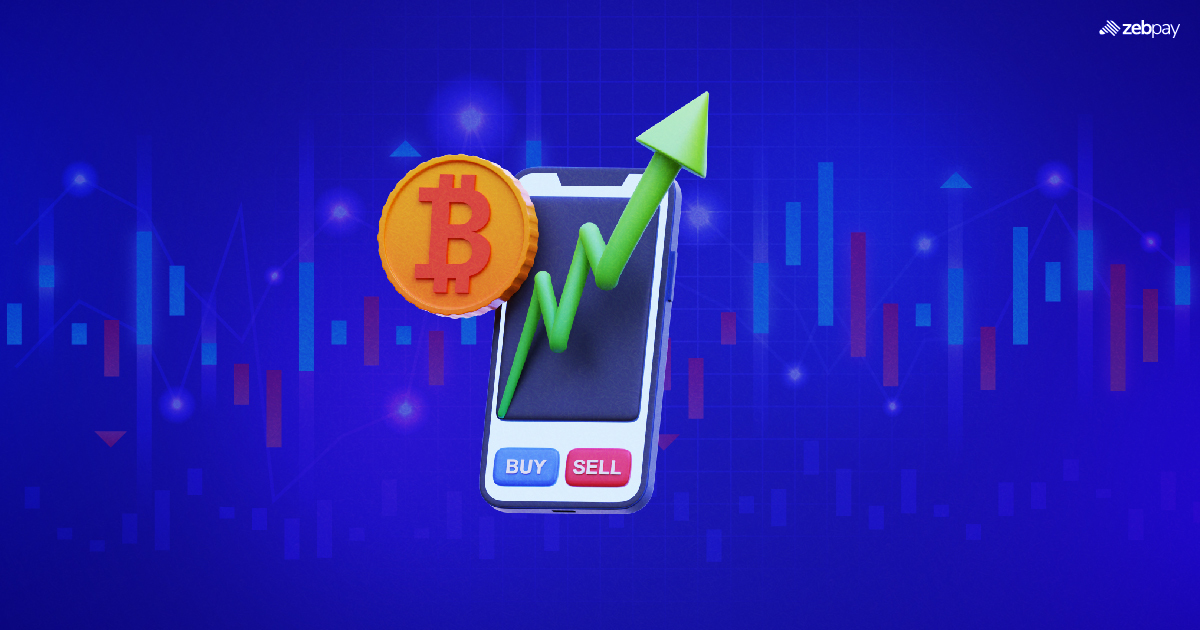01 February 2023 | ZebPay Trade-Desk
While the long-term socio-economic impact of the COVID-19 pandemic is not yet known, most economies are still grappling with the impact of the global financial crisis. Additional obstacles for people include slow wage growth, skyrocketing real estate costs and national debt. While assets such as Bitcoin, Ether and other cryptos emerged, they have endured a rollercoaster ride due to volatility and corporate mismanagement.
In light of this, real asset-backed tokenized securities have emerged as assets from real estate, commodities or company shares. Tokenized securities use blockchain for issuance, representation and trading of an underlying asset, while crypto assets like BTC are digital assets that are not backed by physical assets and whose value is determined by unique fundamental factors and market demand. On the other hand, tokenized securities get their value from collateral.
In general, an index fund is a type of mutual fund that aims to track the performance of a specific market. In this context, a crypto index fund is a type of investment vehicle that aims to track the performance of a specific index of crypto assets, For example, the top 10 or 20 coins by market cap.
Crypto funds Index funds are similar to traditional index funds that track the performance of a specific stock index, such as the S&P 500. The S&P 500 tracks the performance of 500 large publicly traded companies in the United States. However, these funds differ from crypto exchange-traded funds (ETFs), which are similar to traditional ETFs that include a basket of assets (in this case crypto assets) and can be traded on a securities exchange. While traditional ETFs have the underlying assets they track, crypto ETFs have derivatives, such as Futures contracts that track the price of the underlying assets.
Examples of crypto index funds include Grayscale’s “Digital Large Cap Fund”, which tracks the top 10 crypto assets by market cap, and Bitwise’s “10 Crypto Index Fund”, which tracks the top 10 coins by market cap and weighted them by liquidity.
Read more: Crypto Trading Strategies
The main benefit of investing in a crypto index fund is that it offers investors diversification. By investing in a basket of crypto assets rather than just one asset, investors can spread their risk and reward across multiple assets. This can help mitigate the volatility commonly associated with a single crypto asset. Another advantage of crypto funds like Grayscale’s Digital Large Cap Fund is that they are managed by professional fund managers, who are responsible for selecting the assets that make up the index and rebalancing the Crypto portfolio as needed. This can help reduce the amount of time and effort required for individual investors to research and select individual coins to invest in.
However, since crypto index funds are still relatively new and are rapidly evolving, and the regulatory environment around them is still uncertain in many countries, it is important that investors do thorough research on their chosen crypto index fund before investing.
Crypto index funds offer investors the opportunity to gain exposure to a basket of crypto assets rather than having to select individual assets to invest in.
Advantages of Crypto Index Funds
- Diversification – By investing in a basket of crypto assets, index funds can help spread risk and reward across different currencies and projects.
- Professional Management: Index funds are generally managed by experienced professionals who make decisions about which coins go into the fund and when they are rebalanced.
- Liquidity: Because index funds are traded on exchanges, they can just be bought and sold like any other asset.
- Tax Efficiency: Index funds are tax efficient and may even offer a tax advantage by holding only one index fund rather than numerous individual stocks, especially when held in a taxable account.
Disadvantage of Crypto Index Funds
- Lack of control: Investors in index funds have less control over their investments than those who own individual coins, as the fund’s managers make the decisions about what coins to hold.
- Higher fees: Index funds often come with higher fees than buying individual coins, as there are costs associated with managing the fund.
- Barrier to access: Countries without Crypto exchanges, which include many underdeveloped countries, do not permit access to crypto index funds. In addition, an underbanked or poor population cannot invest in index funds, even in nations with Crypto exchanges.
- Lack of knowledge: Novice investors who lack the knowledge and expertise to pick individual coins may miss out on opportunities to invest in promising projects that are not included in the fund.
| Crypto Index Funds | Traditional Index Funds | |
| Underlying assets tracked by the fund | Crypto listed on digital asset exchanges | Stocks, bonds & other securities listed on stock exchanges |
| Volatility and risk | High | Low |
| Regulations | Not yet fully regulated | Regulated |
Crypto index funds will likely continue to grow as more investors become interested in the Crypto market and the industry matures. Additionally, growing institutional interest in the Crypto market is expected to drive the development of more sophisticated schemes and various index funds, as well as increased regulation in this area.
Read more: 4 Ways to Calculate Crypto Profit and Loss
In addition, the use of index funds could help increase transparency and liquidity in the Crypto market, making it more accessible to a wider range of investors.

